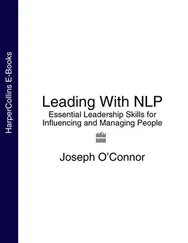Dale Carnegie - How To Win Friends And Influence People
Здесь есть возможность читать онлайн «Dale Carnegie - How To Win Friends And Influence People» весь текст электронной книги совершенно бесплатно (целиком полную версию без сокращений). В некоторых случаях можно слушать аудио, скачать через торрент в формате fb2 и присутствует краткое содержание. Жанр: Психология, на английском языке. Описание произведения, (предисловие) а так же отзывы посетителей доступны на портале библиотеки ЛибКат.
- Название:How To Win Friends And Influence People
- Автор:
- Жанр:
- Год:неизвестен
- ISBN:нет данных
- Рейтинг книги:4 / 5. Голосов: 2
-
Избранное:Добавить в избранное
- Отзывы:
-
Ваша оценка:
- 80
- 1
- 2
- 3
- 4
- 5
How To Win Friends And Influence People: краткое содержание, описание и аннотация
Предлагаем к чтению аннотацию, описание, краткое содержание или предисловие (зависит от того, что написал сам автор книги «How To Win Friends And Influence People»). Если вы не нашли необходимую информацию о книге — напишите в комментариях, мы постараемся отыскать её.
How To Win Friends And Influence People — читать онлайн бесплатно полную книгу (весь текст) целиком
Ниже представлен текст книги, разбитый по страницам. Система сохранения места последней прочитанной страницы, позволяет с удобством читать онлайн бесплатно книгу «How To Win Friends And Influence People», без необходимости каждый раз заново искать на чём Вы остановились. Поставьте закладку, и сможете в любой момент перейти на страницу, на которой закончили чтение.
Интервал:
Закладка:
Such are the results that Mrs Lincoln, the Empress Eugenic, and Countess Tolstoi obtained by their nagging. They brought nothing but tragedy into their lives. They destroyed all that they cherished most.
Bessie Hamburger, who has spent eleven years in the Domestic Relations Court in New York City, and has reviewed thousands of cases of desertion, says that one of the chief reasons men leave home is because their wives nag. Or, as the Boston Post puts it:
"Many a wife has made her own marital grave with a series of little digs."
So, if you want to keep your home life happy,
• Rule 1 is: Don't, don't nag!!!
"I May Commit many follies in life," Disraeli said, "but I never intend to marry for love." And he didn't. He stayed single until he was thirty-five, and then he proposed to a rich widow, a widow fifteen years his senior; a widow whose hair was white with the passing of fifty winters. Love? Oh, no. She knew he didn't love her. She knew he was marrying her for her money! So she made just one request: she asked him to wait a year to give her the opportunity to study his character. And at the end of that time, she married him.
Sounds pretty prosaic, pretty commercial, doesn't it? Yet paradoxically enough, Disraeli's marriage was one of the most glowing successes in all the battered and bespattered annals of matrimony.
The rich widow that Disraeli chose was neither young, nor beautiful, nor brilliant. Far from it. Her conversation bubbled with a laughprovoking display of literary and historical blunders. For example, she "never knew which came first, the Greeks or the Romans." Her taste in clothes was bizarre; and her taste in house furnishings was fantastic. But she was a genius, a positive genius at the most important thing in marriage: the art of handling men.
She didn't attempt to set up her intellect against Disraeli's. When he came home bored and exhausted after an afternoon of matching repartee with witty duchesses, Mary Anne's frivolous patter permitted him to relax. Home, to his increasing delight, was a place where he could ease into his mental slippers and bask in the warmth of Mary Anne's adoration. These hours he spent at home with his ageing wife were the happiest of his life. She was his helpmate, his confidante, his advisor. Every night he hurried home from the House of Commons to tell her the day's news. And-this is important- whatever he undertook, Mary Anne simply did not believe he could fail.
For thirty years, Mary Anne lived for Disraeli, and for him alone. Even her wealth she valued only because it made his life easier. In return, she was his heroine. He became an Earl after she died; but, even while he was still a commoner, he persuaded Queen Victoria to elevate Mary Anne to the peerage. And so, in 1868, she was made Viscountess Beaconsfield.
No matter how silly or scatterbrained she might appear in public, he never criticized her; he never uttered a word of reproach; and if anyone dared to ridicule her, he sprang to her defence with ferocious loyalty. Mary Anne wasn't perfect, yet for three decades she never tired of talking" about her husband, praising him, admiring him.
Result? "We have been married thirty years," Disraeli said, "and I have never been bored by her." (Yet some people thought because Mary Anne didn't know history, she must be stupid!) For his part, Disraeli never made it any secret that Mary Anne was the most important thing in his life. Result? "Thanks to his kindness,"
Mary Anne used to tell their friends, "my life has been simply one long scene of happiness." Between them, they had a little joke. "You know," Disraeli would say, "I only married you for your money anyhow." And Mary Anne, smiling, would reply, "Yes, but if you had it to do over again, you'd marry me for love, wouldn't you?" And he admitted it was true. No, Mary Anne wasn't perfect. But Disraeli was wise enough to let her be herself.
As Henry James put it: "The first thing to learn in. intercourse with others is noninterference with their own peculiar ways of being happy, provided those ways do not assume to interfere by violence with ours."
That's important enough to repeat: "The first thing to learn in intercourse with others is noninterference with their own peculiar ways of being happy…"
Or, as Leland Foster Wood in his book, Growing Together in the Family, has observed: "Success in marriage is much more than a matter of finding the right person; it is also a matter of being the right person."
So, if you want your home life to be happy,
• Rule 2 is: Don't try to make your partner over.
Disraeli's bitterest rival in public life was the great Gladstone. These two clashed on every debatable subject under the Empire, yet they had one thing in common; the supreme happiness of their private lives.
William and Catherine Gladstone lived together for fifty-nine years, almost three score years glorified with an abiding devotion. I like to think of Gladstone, the most dignified of England's prime ministers, clasping his wife's hand and dancing around the hearthrug with her, singing this song:
A ragamuffin husband and a rantipoling wife, We'll fiddle it and scrape it through the ups and downs of life.
Gladstone, a formidable enemy in public, never criticized at home.
When he came down to breakfast in the morning, only to discover that the rest of his family was still sleeping, he had a gentle way of registering his reproach. He raised his voice and filled the house with a mysterious chant that reminded the other members that England's busiest man was waiting downstairs for his breakfast, all alone.
Diplomatic, considerate, he rigorously refrained from domestic criticism.
And so, often, did Catherine the Great. Catherine ruled one of the largest empires the world has ever known. Over millions of her subjects she held the power of life and death. Politically, she was often a cruel tyrant, waging useless wars and sentencing scores of her enemies to be cut down by firing squads. Yet if the cook burned the meat, she said nothing. She smiled and ate it with a tolerance that the average American husband would do well to emulate.
Dorothy Dix, America's premier authority on the causes of marital unhappiness, declares that more than fifty per cent of all marriages are failures; and she knows that one of the reasons why so many romantic dreams break up on the rocks of Reno is criticism-futile, heartbreaking criticism.
So, if you want to keep your home life happy, remember
• Rule 3: Don't criticize.
And if you are tempted to criticize the children… you imagine I am going to say don't. But I am not. I am merely going to say, before you criticize them, read one of the classics of American journalism,
"Father Forgets." It appeared originally as an editorial in the People's Home Journal. We are reprinting it here with the author's permission-reprinting it as it was condensed in the Reader's Digest:
"Father Forgets" is one of those little pieces which- dashed off in a moment of sincere feeling-strikes an echoing chord in so many readers as to become a perennial reprint favourite. Since its first appearance, some fifteen years ago, "Father Forgets" has been reproduced, writes the author, W. Livingston Larned, "in hundreds of magazines and house organs, and in newspapers the country over. It has been reprinted almost as extensively in many foreign languages.
I have given personal permission to thousands who wished to read it from school, church, and lecture platforms. It has been 'on the air' on countless occasions and programmes. Oddly enough, college periodicals have used it, and high-school magazines. Sometimes a little piece seems mysteriously to 'click.' This one certainly did."
Читать дальшеИнтервал:
Закладка:
Похожие книги на «How To Win Friends And Influence People»
Представляем Вашему вниманию похожие книги на «How To Win Friends And Influence People» списком для выбора. Мы отобрали схожую по названию и смыслу литературу в надежде предоставить читателям больше вариантов отыскать новые, интересные, ещё непрочитанные произведения.
Обсуждение, отзывы о книге «How To Win Friends And Influence People» и просто собственные мнения читателей. Оставьте ваши комментарии, напишите, что Вы думаете о произведении, его смысле или главных героях. Укажите что конкретно понравилось, а что нет, и почему Вы так считаете.












